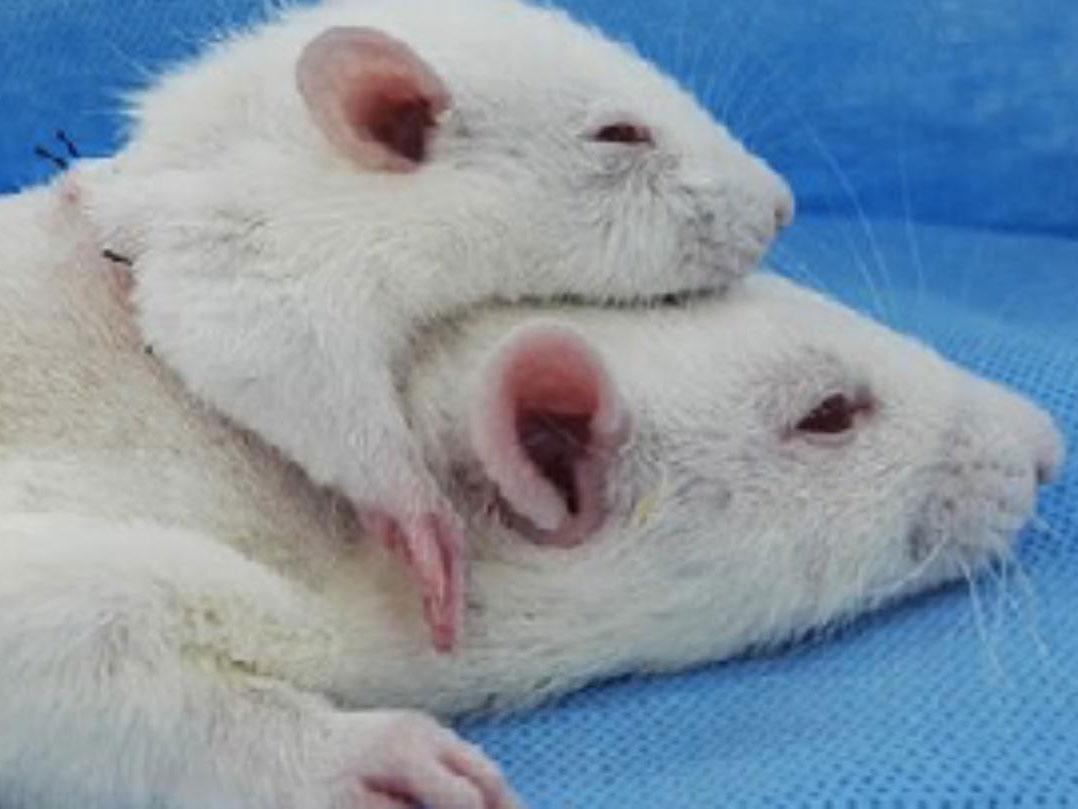Scientists in China conduct 'successful' head transplant on rat
The animals survived for around 36 hours

Your support helps us to tell the story
From reproductive rights to climate change to Big Tech, The Independent is on the ground when the story is developing. Whether it's investigating the financials of Elon Musk's pro-Trump PAC or producing our latest documentary, 'The A Word', which shines a light on the American women fighting for reproductive rights, we know how important it is to parse out the facts from the messaging.
At such a critical moment in US history, we need reporters on the ground. Your donation allows us to keep sending journalists to speak to both sides of the story.
The Independent is trusted by Americans across the entire political spectrum. And unlike many other quality news outlets, we choose not to lock Americans out of our reporting and analysis with paywalls. We believe quality journalism should be available to everyone, paid for by those who can afford it.
Your support makes all the difference.Scientists in China claim to have conducted a successful head transplant on a rat.
Controversial surgeon Sergio Canavero and colleague Xiaoping Ren attached the head of a smaller rat onto a larger one while maintaining the brain activity of the donor.
A third rat was used to keep up blood pressure on the rats being operated on, which otherwise would have been catastrophic and killed the animals.
The experiment was repeated on a number of other rats. Most only survived for around 36 hours after the procedure.
But it was hailed as a success by Dr Canavero because its goal was to avoid major blood loss.
Images of the rats appear to show the donor’s front paws and head stitched to the upper neck of the recipient rat.
Dr Canavero has previously conducted a similar experiment on a dog, in which its spinal cord was severed, but it is unknown how long it survived for.
Last year, he claimed to have successfully carried out a head transplant on a monkey, which survived for 20 hours before being euthanised for ethical reasons.
Despite the poor survival rate of the rats, Dr Canavero maintained the experiment was a crucial step forward towards head transplants on humans.
But other neurosurgeons have disputed this claim. Responding to the dog experiment, neuroscientist at Case Western Reserve University Jerry Silver told the New Scientist: “These papers do not support moving forward in humans.”
Dr Canavero has announced he and Dr Xiaoping will attempt to carry out the first head transplant later this year in Harbin, China.
He first announced his intention to carry out the procedure in 2013 and has been encouraged by his latest success.
A Russian man with the degenerative Werdnig-Hoffman's disease named Valery Spiridonov was going to undergo the procedure but Dr Canavero has now said a Chinese citizen will undergo the process.
In a statement, Dr Canavero said a “high number of volunteers from all over the world came forward”.
He added: “The final decision is only made immediately prior to the operation, as it also depends on the body donor, who has to be compatible with the receiver in many ways.”
Other scientists have strongly criticised the plan.
"I would not wish this on anyone," said Dr Hunt Batjer, the president of the American Association for Neurological Surgeons, in 2015. "I would not allow anyone to do it to me as there are a lot of things worse than death."
Join our commenting forum
Join thought-provoking conversations, follow other Independent readers and see their replies
Comments